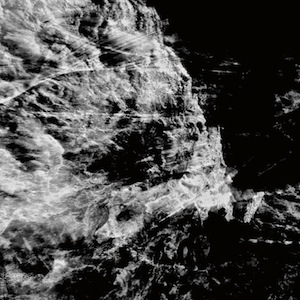Anton Zap Water
R&S’s reboot of Apollo, its chillout-room sub-label, has not exactly matched the vitality of the […]

R&S’s reboot of Apollo, its chillout-room sub-label, has not exactly matched the vitality of the imprint’s original run. Both labels have long been known for their range, but the new Apollo has degraded, barring a few exceptions, into a wallpaper of tiresome guitar music and limp, played-out UK bass tropes. The astral-pastoral sensibility that marked essential work by Aphex Twin, Sun Electric, Locust, and more, is rarely even glimpsed. If there is a contemporary artist that understands this original ethos, however, it is Russia’s Anton Zap. Once associated with Jus-Ed’s Underground Quality stable, and now head of his own, frequently marvelous Ethereal Sound outpost, the Muscovite producer has etched a fine catalog of fathoms-deep house. If recent Apollo releases have put off its longtime supporters, Water, Zap’s debut album, ought to win a few back.
That said, it might be trickier convincing listeners who require something futuristic. Zap’s style is strikingly uncomplicated, and it is not difficult to understand how one might recreate one of his tracks. Sure, there are some contemporary parts—sidechained white noise and smudgy, filtered-down percussion, for example—but none are deployed in a particularly challenging way. Zap’s drums skip fleetly but without a lot of change (the breaky, hip-hop-influenced “Funky Man,” though expertly textured, is a glaring exception), submerged basslines lock in and stay put, and aside from spacious, omnipresent chords and pads, there is not a great deal of melody. Water succeeds because, like its esteemed predecessors on Apollo, it is a kind of ambient music. Zap’s tracks are about choosing the right sounds. A piece like “Road Trip Song” might rely on a persistent, swung rhythm and dub effects—both potentially oppressive elements—but they are composed serenely enough to live up to the track’s title. “Miles and More” patiently unfurls twilit pads atop flowing, partly tinny drums, as a pilot speaks of flying through “thin layers of clouds… over the city.” In other sections, Zap pulls back even further. The rippling “Fade to What” is totally beatless, and “Miniature” gets its title from its delicate percussion, which is dwarfed by glistening string pads.
Several of the record’s pieces are propulsive enough to work in the midst of club sets, but the compositions here generally resist overt categorization. Zap thankfully doesn’t make his music about anything, and as such, Water slips peacefully into the odd corners of the day. The album’s tones are rich with landscape and emotion, but they are so fluid as to mold to the listener’s mindset, potentially representing anything from country fields to smog-choked towerblocks, nocturnal melancholy to tranquil happiness. Its gentle nudge forward is a welcome antidote to so much fussy, over-the-top dance music.

